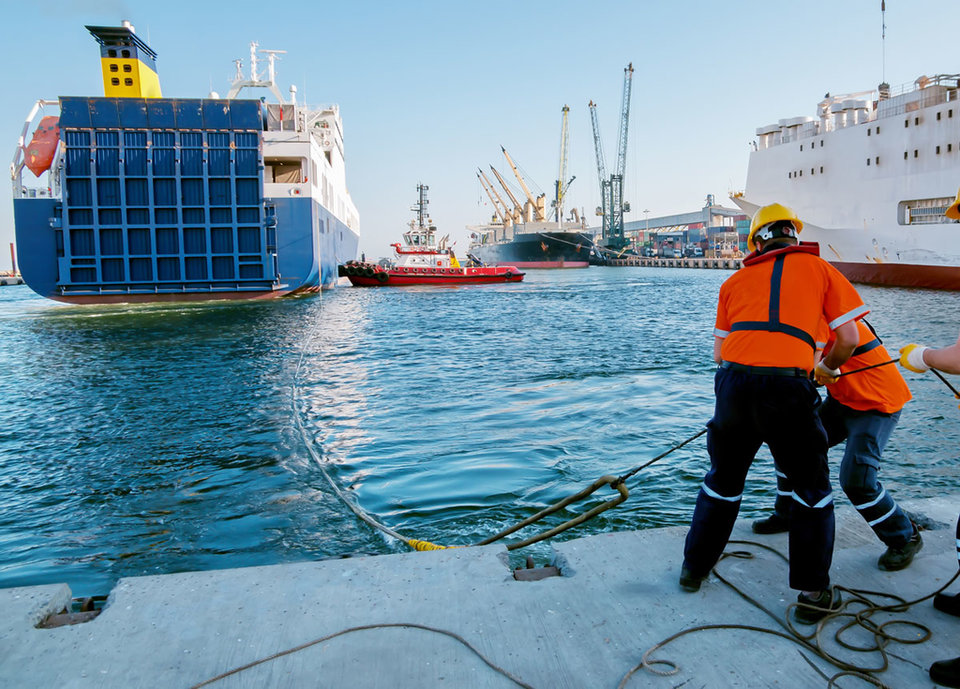Q&A | CREW
tackling age discrimination in shipping
The International Chamber of Shipping (ICS) recently released its new ‘Guidelines for Shipowners to Avoid Age Discrimination On Board Ships’, touching on subjects such as recruitment, retirement and promotion. ICS director of employment affairs Natalie Shaw discusses key takeaways from the paper and future steps with Adele Berti.
The shipping industry
is making efforts to purge all kinds of discrimination from its workforce and structure.
Last year, for example, the sector took a strong stance on tackling gender bias when the International Maritime Organization (IMO) made ‘Empowering Women in the Maritime Community’ the theme of World Maritime Day.
Stakeholders are also striving to get to the root of race, religion and sexuality-based discrimination as they embrace initiatives such as the Gender Empowerment and Multi-cultural Crew (GEM) projector the Diversity Study Group.
As of January, ageism – due to which decisions in the workplace are made based on a person’s age rather than their capabilities – can also be added to this list courtesy of the International Chamber of Shipping (ICS).
With the age gap between seafarers in some workplaces currently as high as 50 years, the ICS’s newly released ‘Guidelines for Shipowners to Avoid Age Discrimination On Board Ships’ offers practical solutions on how to avoid age bias. It takes into consideration all parts of a seafarer’s career, from recruitment to retirement.
The paper is included – though only as an additional recommendation – within the International Labour Organization’s (ILO) Maritime Labour Convention 2006, under which flag states have to ensure that their legislation protects a person’s freedom from any employment-related form of discrimination.
ICS director of employment affairs Natalie Shaw breaks down the guidelines’ goals and assesses the extent to which ageism is affecting the shipping sector.
Adele Berti:
What's the reason behind the publication of your guidelines?
Natalie Shaw: Over the last few years, we've been talking about a democratic time bomb in the industry. You probably recall that seafarers are perhaps working longer, and we've had situations where we've been concerned about supply and demand and it's prompted people staying longer at sea. Also at the other extreme, the first thing that companies cut back on in a downturn is cadets and bringing new blood into the industry as it's costly.
So, we really wanted to try and ensure that we looked at valuing diversity in all aspects, not just gender. For that reason, we wanted to start to think about what actions we could actually put in place to encourage people to consider best practice in looking at people and whether or not age inhibited them being able to do the job –as sometimes it's based on false assumptions –and we recognised that there might be some people who may find something too strenuous but others may be very fit and able to do it. So, perhaps there should be more objective criteria in place.

AB: Is age discrimination a significant issue within the industry?
NS: Not necessarily, but this is a recognition that the industry is changing and things are moving on, and perhaps traditional stereotypes may no longer be appropriate in the current environment. So, our guidelines are to encourage people to think about it and evaluate how they can optimise recruitment and retention, as well as providing best practice examples.
This type of discrimination has an obvious impact on the employee and their family if they're wrongly discriminated against as at the end of the day, for lots of people, their fundamental ability to go to sea is a major factor to financially supporting their family. But it's also equally important that people do not work at sea if they're not capable anymore, so it should be based around capability as opposed to age.
AB: Are there any specific areas where bias and discrimination are more likely to happen?
NS: It varies from country to country. European countries all have these sorts of things as standard procedures as they're built into European laws and legislation but that's not necessarily the case in some Asian countries, Africa and South America. So, what we're trying to do is to get companies to review this from a global basis, as we're a global industry.
AB: Do the guidelines include office jobs or just seafarers?
NS: The guidance is primarily for those working at sea. If shipping companies want to extend them to shore-based staff they can, but we deliberately designed this for sea-based personnel.

AB: Are there any specific types of jobs where age plays a role?
NS: It's not so much age, it's more ability and capability. For example, one 60-year-old employee may be very fit and perfectly able to do manual work, while another 35-year-old could be obese and unable to do it. In the past, it's been perceived to be an age issue, but actually, it isn't always the case. It's more a capability issue and any evaluation should be based on capability.
The other thing is that there are certain limitations on age within the scope of the ILO Maritime Labour Convention. A table at the end of our guidelines lists things that are limited. For example, certain restrictions are put on seafarers under 16 for their health and safety protection which must be observed. Our guidelines are about trying to put in one document some thoughts about the type of things companies should consider regarding age, whether the elderly or youth spectrum.
AB: Is there an age range more likely to be targeted?
NS: No, I don't think so. It very much depends on the culture of the company.
AB: Are there any areas around the world where discrimination rates are higher than average?
NS: We don't have any figures on the matter, but know of legislation differences and there are companies that tend to operate globally with employees in many different countries, so it's important to try and get common policies that apply on a global scale.
AB: What are your next steps?
NS: We will review our guidelines – as we do with all ICS guidance – at the appropriate time and see where it goes. But this is going to be one of a number of diversity initiatives we're considering. There are other areas that we're planning to produce guidance on too.
ICS director of employment affairs Natalie Shaw. Image: ICS